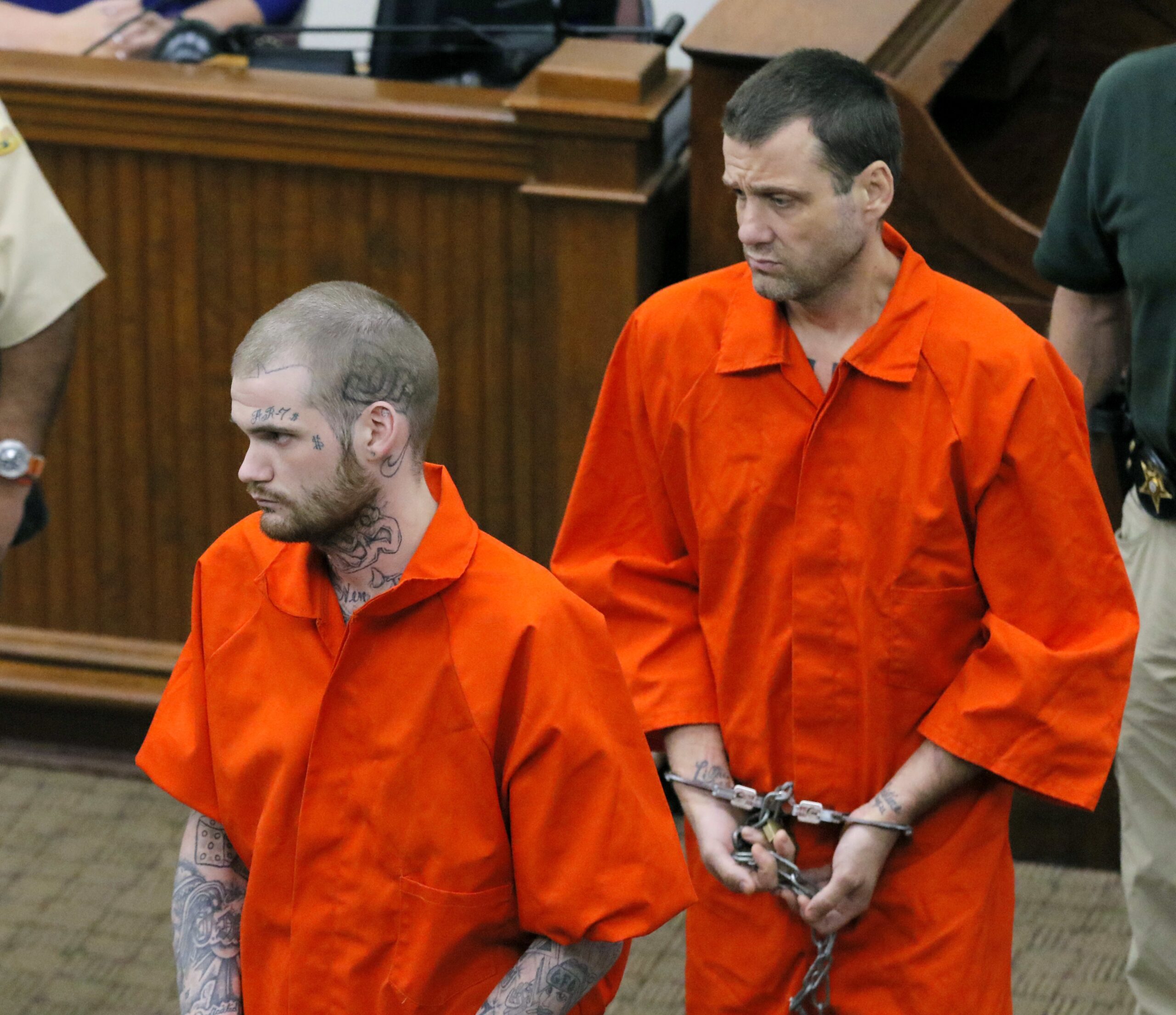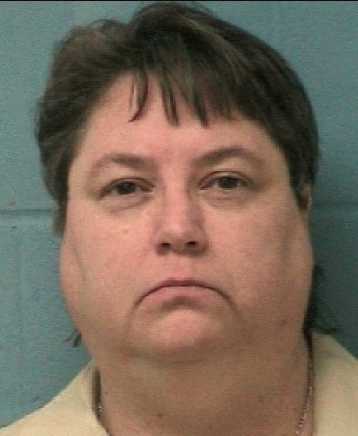Reward Tops $100K In Capture Of Ga. Inmates: Who Does It Go To?

6/21/17 – Eatonton, GA – Ricky Dubose (front) and Donnie Russsell Rowe enter the Putnam County courthouse on Wednesday, June 21. Ricky Dubose and Donnie Russell Rowe, captured fugitives accused of killing two prison guards, had their first appearance in Putnam County Court this morning. District Attorney Stephen Bradley says he will seek the death … Continued
Bob Andres/Atlanta Journal-Constitution via AP
When two Georgia inmates escaped from a prison bus leaving two dead guards in their wake, the reward for information leading to their capture rose quickly.
During a prison transfer early on June 13, Ricky Dubose and Donnie Rowe overpowered Sgt. Christopher Monica and Sgt. Curtis Billue, authorities said. The pair then carjacked the first driver to pull up behind the bus on a lonely stretch of highway in Putnam County and fled in his green Honda Civic.
There was evidence they ransacked a home in Madison, about 25 miles to the north, a few hours later and stole a pickup from a nearby quarry, but that’s where the trail ran cold.
Two days later, with no new clues and an intense manhunt underway, Putnam County Sheriff Howard Sills announced that the reward had climbed to an unusually high $130,000.
Within hours, the two were in custody in Tennessee after holding a couple hostage in a violent home invasion near Shelbyville, leading deputies on a high-speed chase and then surrendering to a homeowner near the community of Christiana, authorities said.
That’s when everyone started asking about the reward.
How Much Money Was It?
By the time the two shirtless, heavily tattooed suspects were taken into custody on June 15, the reward had risen to $141,000, Sills said. But that money wasn’t all sitting in a bank account ready to be handed out. It existed in the form of pledges.
Where Did The Money Come From?
Sills got the ball rolling, putting up $10,000 from his office right after the escape. Other pledges began coming in right away, and Sills’ office kept him updated on the latest tally as he focused on the investigation.
Who Gave What?
- $20,000 each: FBI; Georgia Bureau of Investigation;
- $15,000: New York State Correctional Officers and Police Benevolent Association;
- $10,000 each: Putnam County Sheriff’s Office; Butts County Sheriff’s Office; Green County Sheriff’s Office; Northern Judicial Circuit District Attorney’s Office; anonymous private individual;
- $5,000 each: Georgia Department of Corrections; Spalding County Sheriff’s Office; Oconee County Sheriff’s Office; Georgia Fraternal Order of Police; U.S. Bureau of Alcohol, Tobacco, Firearms and Explosives; CorrectHealth; Georgia Sheriffs’ Association;
- $1,000: Georgia Association of Chiefs of Police.
Who’s Getting The Money?
Authorities won’t say exactly who’s getting it.
The Georgia Bureau of Investigation announced on June 23, just over a week after the arrests, that it would split its $20,000 in reward money evenly between two households in Tennessee but said the recipients’ names were being withheld at their request.
The two federal agencies, the FBI and ATF, planned to distribute their money themselves, but neither agency would say who would get the money or how it would be divided.
The rest of the donors decided to let Sills figure out how to distribute the money, a total of $96,000. Checks started coming in within days, and he got the final one Monday. He decided to give $5,000 to one person involved in the case and then to divide the remaining $91,000 equally between two households in Tennessee and a confidential informant, with each getting $30,334 (Sills threw in $2 from his own pocket to make the amount nice and even).
Is That Kind Of Secrecy Normal?
Yes. Anonymity, even more than money, is a key factor in getting people to call in tips, said Barb Bergin, who chairs the board of Crime Stoppers USA, which has programs around the country that offer rewards for anonymous tips that lead to arrests. In fact, she said, the rewards often go unclaimed by people who have called in valuable tips.
“People aren’t calling for the money,” Bergin said. “They are calling for the anonymity.”
9(MDAxODM0MDY4MDEyMTY4NDA3MzI3YjkzMw004))








